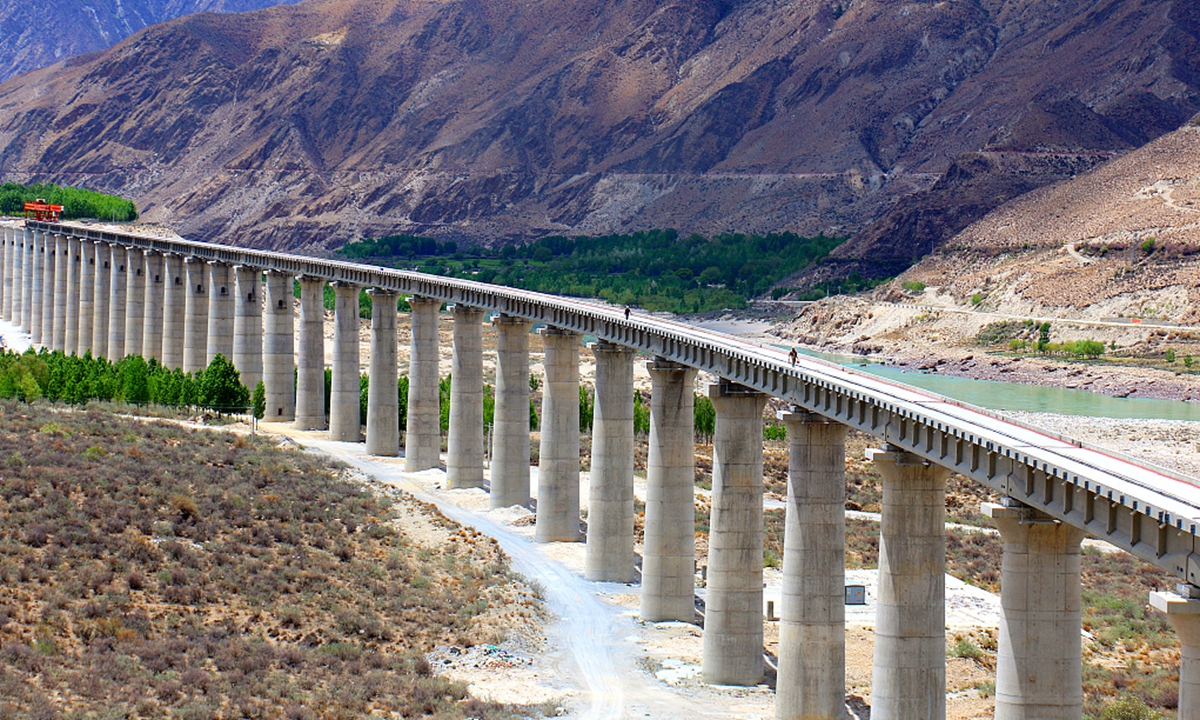Sichuan-Tibet Railway construction pledges to lessen environmental impact: environment authority
Source: Global Times Published: 2020/11/22 22:36:57

Photo: VCG
China's environment authority on Saturday vowed to make environmental protection a priority during the construction of the Sichuan-Tibet Railway by making a plan that will have the smallest possible impact on the local environment and establishing a collaborative mechanism to supervise construction.
Lessening the railway's environmental impact should be brought into the whole construction process, said Huang Runqiu, Minister of the Ministry of Ecology and Environment (MEE) at a symposium in the city of Nyingchi, Tibet, on Saturday.
Huang emphasized that the project should avoid environmental sensitive areas and take the strictest measures to protect the environment, ensure investment in environmental protection and choose construction methods and technology which will lessen the impact on the environment.
"Great importance should be attached to the impact on railway construction and operation caused by potential disasters, environmental degradation and landslides, and the ability should be improved to adapt to climate change," said Huang.
The symposium heard that the MEE will establish a collaborative supervision mechanism with Sichuan Province, Tibet Autonomous Region and China State Railway Group Co., Ltd. to strengthen supervision, law enforcement and accountability. It will have "zero tolerance" for illegal environmental damage during the construction and operation of the Sichuan-Tibet Railway.
According to the official website of MEE, the symposium was chaired by Huang Runqiu. Also in attendance was Qizhala, Deputy Secretary of the Party Committee of Tibet Autonomous Region and chairman of Tibet regional government.
Before the symposium, Huang, Qizhala and other official staff surveyed places where tunnels, bridges and railway stations will be built within the Nyingchi territory. They inspected the environment of the construction area and gave suggestions on the implementation of relevant ecological environment protection measures.
The Sichuan-Tibet Railway, starts in Chengdu, capital of Sichuan Province and ends in Lhasa, the Tibet Autonomous Region. At a length of 1,838 kilometers and a design speed of 160 to 200 kilometers per hour, the rail line will shorten the journey from Chengdu to Lhasa from 48 hours to 13 hours. It is China's second railway into Tibet and one of the main railways in Southwest China.
The Chengdu-Ya'an section of the railway has been in operation since December 2018, and the Lhasa-Nyingchi section started construction in June 2015. The project is proceeding according to plan, reported the Xinhua News Agency.
Global Times
Posted in: ENVIRONMENT